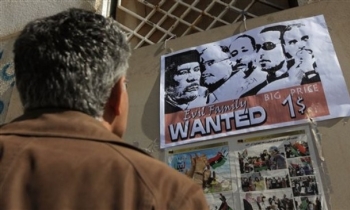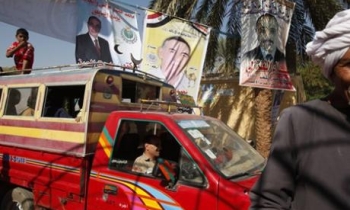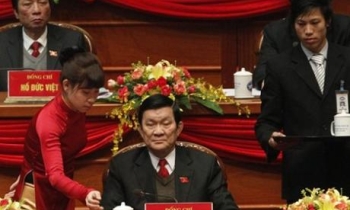The Somalian government’s systematic harassment of journalists, its closures of media outlets, and its failure to investigate the killing of eight journalists have deeply damaged independent reporting in Somalia.
On October 19, two unknown gunmen shot at close range Bashir Nur Gedi, the acting manager of Shabelle Media radio, outside a cafe in Mogadishu. He was returning home in the Hamar Jadid neighborhood after a week. He and other Radio Shabelle employees were staying in the premises of the station due to a series of threats to the staff.
Shabelle, considered one of the leading stations in Somalia, has always been on government’s hit-list because of its critical reporting on the ongoing violence in Mogadishu. Time to time, Shabelle has been harassed, threatened, and attacked by both government security forces and insurgents. The recent killing of Shabelle Media’s Gedi follows months of government attempts to close down Shabelle.
Gedi was the eighth journalist to have been killed in Somalia in 2007. In addition, almost a dozen journalists have been wounded, including during major fighting in Mogadishu, making this the most dangerous year ever for the Somalian media.
Since January, when the Ethiopian-backed Transitional Federal Government (TFG) established itself in Mogadishu, conflict has escalated between TFG and Ethiopian forces on one side and a coalition of insurgent groups on the other. This has resulted in the deaths of hundreds of civilians and displaced up to 4,00,000 people from the Somalian capital. All sides have been responsible for numerous, serious abuses of civilians.
The growth of independent media and civil society, one of the few success stories in Somalia’s 17 years of violent, stateless warfare, has been severely damaged over the past 10 months. Somali journalists reporting on the crisis have come under increasing attack, including through targeted killings. The transitional Somalian government has subjected many journalists to arbitrary arrest and detention, and repeatedly closed independent media outlets.
The perpetrators of most of the eight killings of individual journalists in 2007 remain unknown. To date, Somali government officials have consistently failed to condemn the killings, much less investigate, arrest, or prosecute anyone in connection with them.

On February 16, Ali Mohammed Omar, a journalist working for Warsan Radio, was shot in the head as he left the station’s Baidoa office. The killings on August 11 of Ali Iman Sharmarke and Mahad Ahmed Elmi — respectively the owner and a senior radio journalist at HornAfrik, one of the country’s most prominent media outlets, came as a massive blow to independent journalism. Several prominent HornAfrik employees fled the country in the days after the murders.
Several journalists in Mogadishu say they believe they are being hunted by unknown men in civilian clothes armed with pistols. Some reporters have received anonymous death threats on telephone. One journalist working in Mogadishu told Human Rights Watch that on September 23, he was attacked by three men in central Mogadishu, and only survived because the pistol jammed repeatedly.
He and other Somalian journalists describe a critical situation in Mogadishu, with media targeted by both the Somalian government and insurgent forces. Although the identity of the attackers is often unclear, the threats and type of attack suggest to some journalists that insurgent as well as government forces may be responsible for the killings.TFG forces have repeatedly harassed and detained journalists, particularly in connection with their reporting on events in Mogadishu. TFG has on occasion asserted that the reporting incited violence.
Moreover, arbitrary arrests of journalists continue to be carried out by local and federal authorities throughout the country. More than 40 journalists have been detained so far.
Five journalists were arrested on October 19, three of them in the northeastern region of Puntland, the stronghold of the transitional government's president Abdullahi Yusuf Ahmed. They were Radio Garowe news editor Isse Abdullahi Mohammed, the station's manager, Abdi Farah Jama Mire, and one of its producers, Mohammad Dahir Yusuf. The authorities, which closed down the station, later released Mire and Yusuf, but they are still holding Mohammed.

Local journalists said the arrests were prompted by Radio Garowe's recent broadcast of an interview with Ahmed's former security chief who has broken with the president. During the interview, he had announced that he would soon publish revelations about abuses committed by the government.
The other two arrests were in Mogadishu. Abdullahi Mohammed "Black" Hassan, the editor of the daily newspaper Ayaamaha, was arrested at his office and was held overnight, for a total of 12 hours, without ever being told why. Abdirashid Abdulle Abikar, a Agence France-Presse (AFP) stringer, was briefly detained while taking photos of injured people in the capital's Medina hospital.
On September 17, Somali government troops fired on the Shabelle Media compound and briefly detained 16 of its staff members. The government alleged that a grenade was thrown from the building, which Shabelle vehemently denied. The following day, government troops laid siege to Shabelle radio again, closing the radio station for two weeks.
The armed attacks on Shabelle followed months of temporary closures of media outlets by TFG forces. In January 2007, TFG tried to close down three local radio companies including HornAfrik and Shabelle, as well as the international broadcaster Al-Jazeera. Again on March 21, TFG closed down Al-Jazeera, this time permanently, claiming it was giving airtime to terrorists.
Somalian radio stations continued to transmit despite threats to their operations. In June, TFG again ordered the closure of three local stations, HornAfrik, Shabelle, and Holy Koran Radio.









